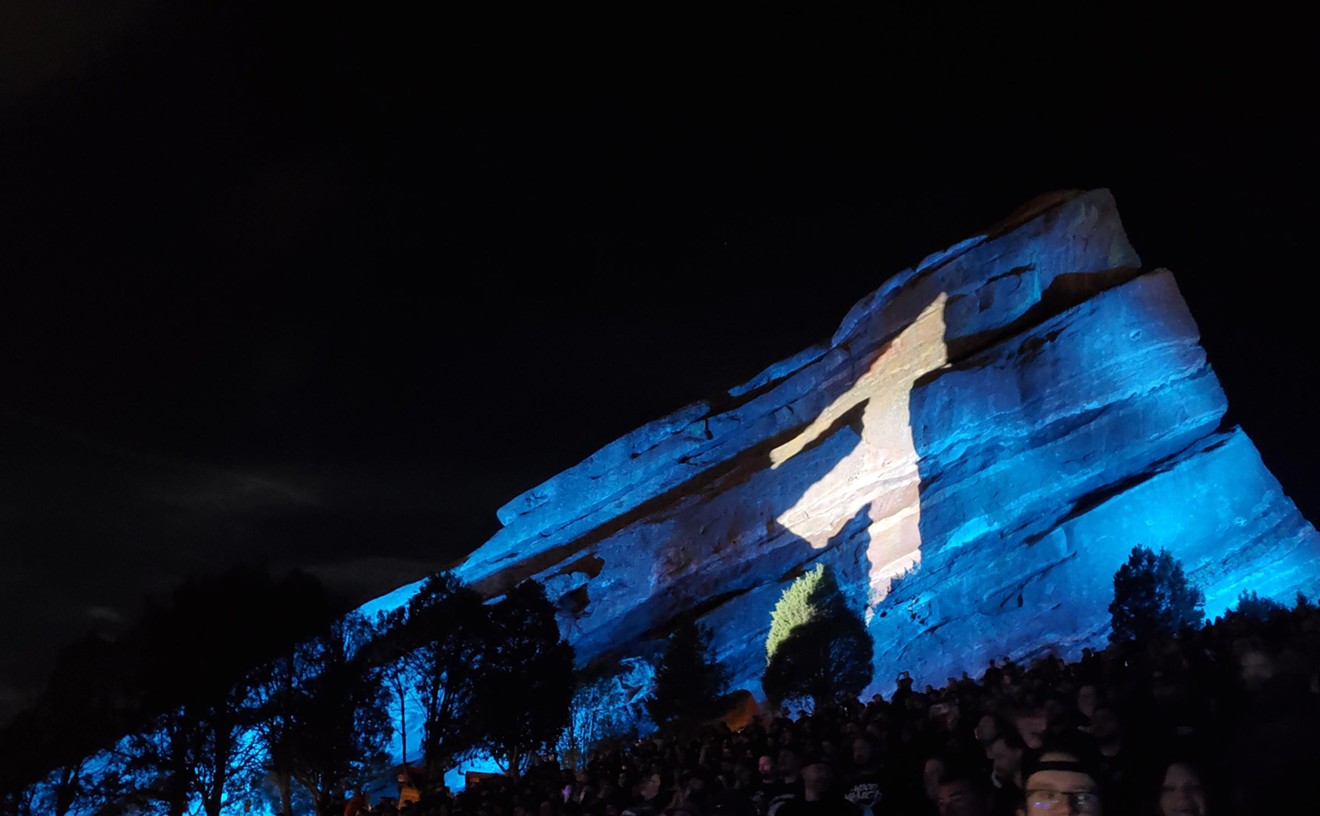True enough, the political scene in Nigeria, his homeland, is turbulent. In June, General Abdulsalam Abubakar, a dictator who took the reigns of power upon the death of the corrupt former president, General Sani Abacha, announced his intention to steer Nigeria toward democratic rule and set free the government's numerous political prisoners. But before he could make good on these promises, the apparent winner of Nigeria's 1993 election, wealthy businessman and tribal leader Moshood Abiola, died in jail, allegedly of a heart attack. Because Abiola's supporters regard reports about the cause of his death with suspicion, wide-scale riots broke out in Lagos. General Abubakar responded by pledging that new elections would take place, but not until the first three months of 1999.
Given the tumultuous nature of these events, it would be perfectly understandable if Ade kept his political opinions to himself. Holding a musician accountable for his or her political stances is in many ways like blaming the milkman for delivering the wrong mail. Besides, Ade, a singer, guitarist, keyboardist, percussionist and composer whose given name is Sunday Anthony Ishola Adeniyi Adegeye, has his financial well-being to consider. The jacket of his 1995 CD E Dide/Get Up points out that in addition to being Nigeria's top musician, "he has become an industry" by channeling the fruits of his musical career into vast holdings in oil and mining companies, nightclubs, film and video firms, record labels and public-relations enterprises. He also knows well the suffering experienced by the late Afrobeat champion Fela Anikulapo Kuti, a controversial Nigerian star who was frequently imprisoned and beaten for his outspoken political sentiments.
However, the release of Odu!, Ade's most recent CD, suggests that Ade has matured into the role of social commentator. Although juju is primarily a live music, supported by the need for entertainers to mark special occasions and rites of passage, Ade mates his latest variations on the genre with words that place a greater emphasis on "fighting indifference" and embracing morality, honor and spirituality. It's a shift that's clear to everyone other than Ade. "Actually, I don't change," he insists, his thick accent reflecting great patience and magnanimity in the face of a malfunctioning cell phone. "We're talking about two things now. If I want to describe the music, I describe it as a party--happy music. But when we're talking about lyrics, I sing especially against immorality, and I sing about people to enjoy yourself because you don't know tomorrow. So I can sing on different things. I can sing to correct immorality. I can sing to correct corruption. I can sing to correct misbehavior."
The imperial demeanor Ade displays can be traced to his background; as he says, "I was born to a royal home"--one that was rich with intriguing sounds. "My father and my grandfather were fans of jazz music," Ade explains. "They loved jazz music. They listened to people like Brook Benton, Duke Ellington, so on and so forth. Louis Armstrong--Satchmo--and Nat "King" Cole, Frank Sinatra." But I.K. Dairo, leader of the Blue Spots, was arguably Ade's single greatest influence. "He played juju music then," he remembers. "The way he played his music, I was so much impressed about it that I decided to go by his own style of music until 1969, when I deviate his own style and form my own style." Ade's accomplishment was validated eight years later, when he earned the title "King of Juju Music" at a public contest.
In surpassing fellow juju luminaries such as Chief Commander Ebenezer Obey, Ade simultaneously embraced modern and traditional musical elements. When asked, he reels off a list of the innovations credited to him and his band, the African Beats: the use of pedal steel (in place of the African violin), a drum kit, multiple guitars, keyboards, a plenitude of talking drums and "many percussion, more percussion than the previous." On Odu!, Ade even throws in the striking sound of a Hammond B3 organ. "In the olden days, they used a church organ to back it up and they used accordions to back it up," he explains. "So using the organ is a common thing, but not really aggressive the way we did it."
Such modifications have proven to be nearly as popular on this side of the Atlantic as they are in Nigeria. Ade's profile in the West rose dramatically during the early Eighties with a series of releases on Island Records, including Juju Music, Synchro System and Aura. The discs are fine examples of juju, with electric guitars mixed to the fore, talking drums adding a mysterious funk flare and vocal harmonies celebrating the roots of it all.
Despite his popularity across the globe, Ade continues to focus much of his attention on Nigeria. A 1996 album project called The Way Forward is a case in point. "I invited 32 different musicians in Nigeria and we sang this song together as a unity song," he says. "And I believe the song is really, really good and the people really like it." Another enterprise, the King Sunny Ade Foundation, supports young musicians and artists in their studies, assists the families of deceased musicians and aids elderly performers.
Ade, who's in his fifties, is a long way from needing such assistance himself. While making Odu!, he oversaw a seventeen-piece band and, in planning his current tour, he says, "we only added more. There are female dancers and female singers and female percussionists."
But it's what these performers do, rather than how many of them there are, that demonstrates why Ade is still the juju king. "Before, in the early Twenties to early Sixties, juju musicians used to sit down like orchestra," he explains. "But now we perform like a concert. You have to dance."
King Sunny Ade. 8 p.m. Friday, July 31, Fox Theatre, 1135 13th St., Boulder, $18.90, 443-3399 or 830-










